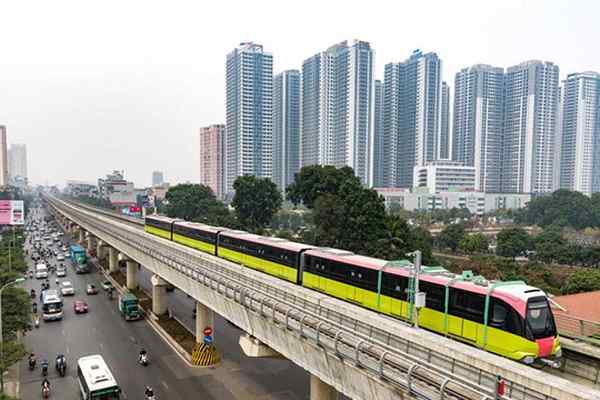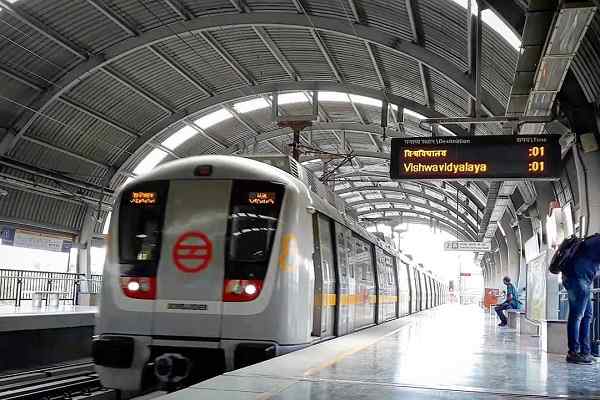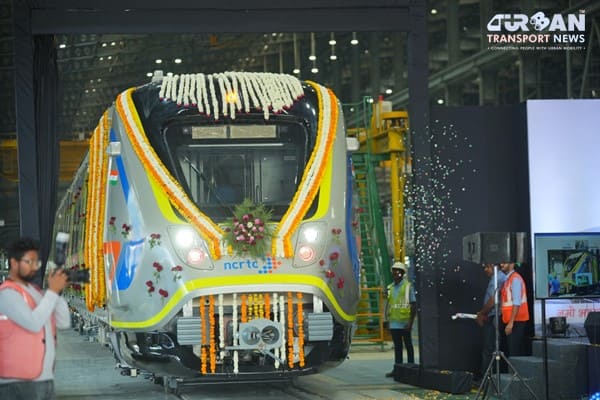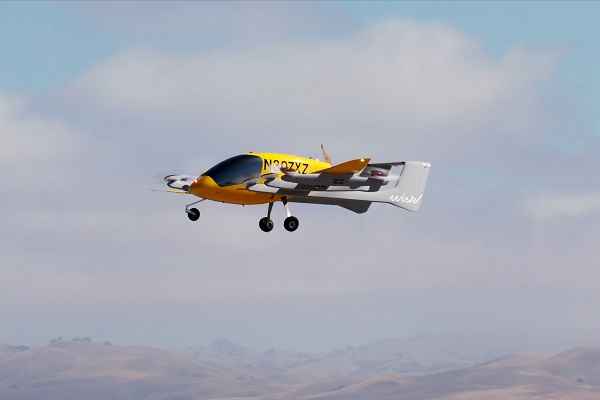 IndiGo to launch Urban Electric Air Taxis between Delhi to Gurugram
IndiGo to launch Urban Electric Air Taxis between Delhi to Gurugram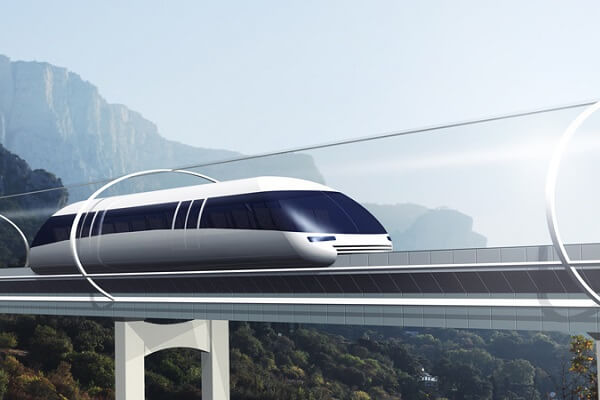 Swisspod secures Strategic Investment to advance the Hyperloop Transportation
Swisspod secures Strategic Investment to advance the Hyperloop Transportation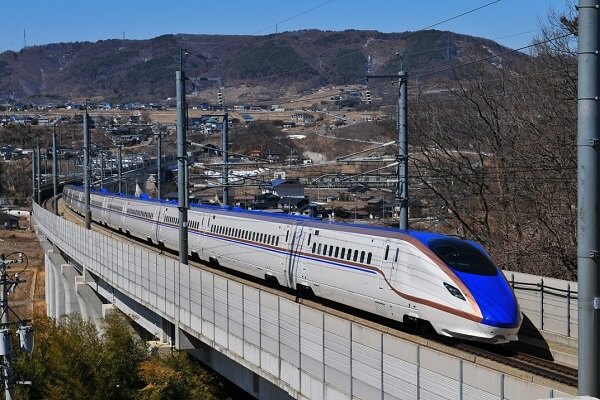 Siemens Mobility revolutionizes Copenhagen's S-bane Network with Driverless Technology
Siemens Mobility revolutionizes Copenhagen's S-bane Network with Driverless Technology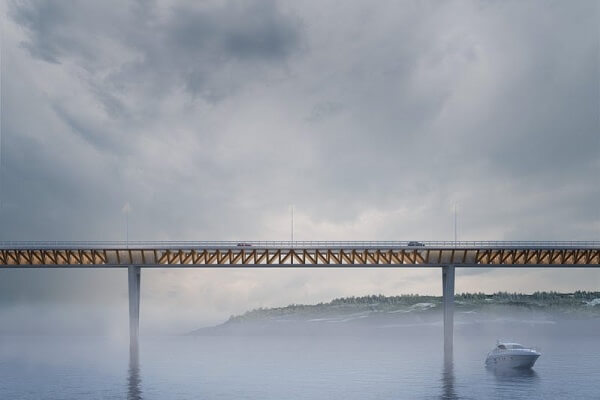 Unlocking prosperity between India and Myanmar: The Kaladan Multi-Modal Transit Project
Unlocking prosperity between India and Myanmar: The Kaladan Multi-Modal Transit Project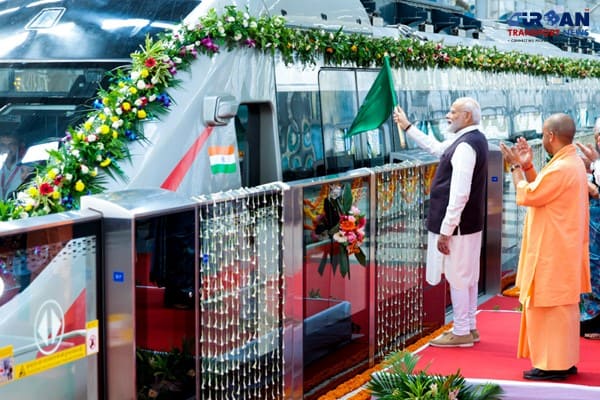 Is the RRTS Truly Accessible to the Common Man or Only the Privileged?
Is the RRTS Truly Accessible to the Common Man or Only the Privileged?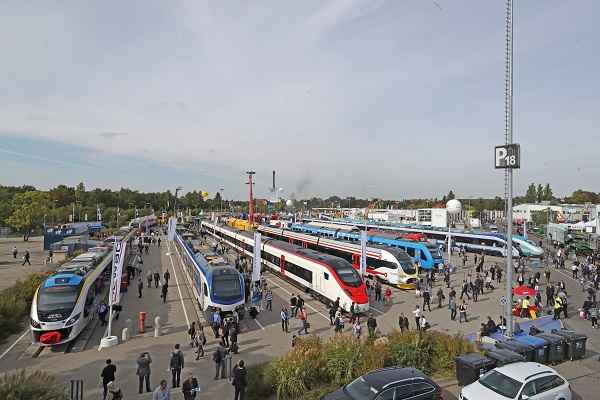 Alstom sold its Rail Signalling Technology Business to Knorr-Bremse for €630 million
Alstom sold its Rail Signalling Technology Business to Knorr-Bremse for €630 million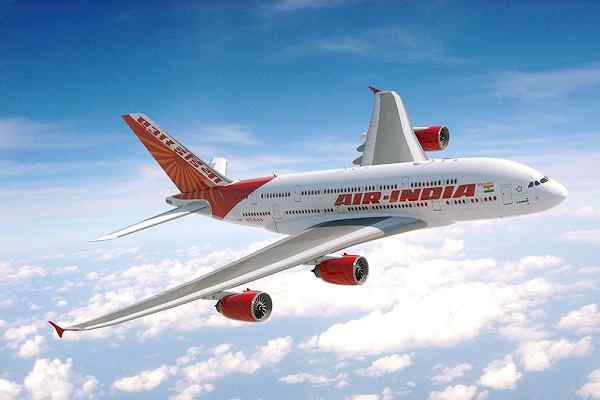 Vensa Infrastructure wins ₹412.58 crore civil contract for Hisar Airport
Vensa Infrastructure wins ₹412.58 crore civil contract for Hisar Airport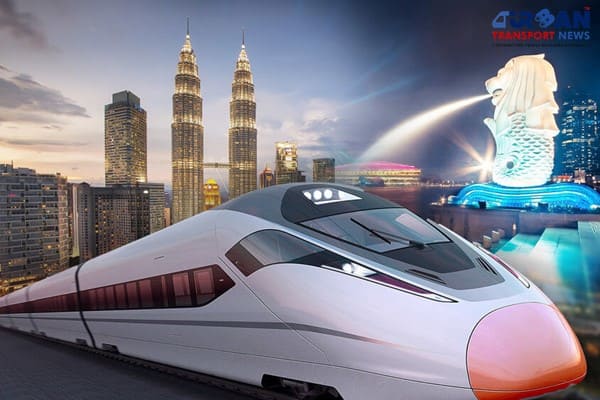 Kuala Lumpur-Singapore high-speed rail project cost could be slashed to RM70 Billion
Kuala Lumpur-Singapore high-speed rail project cost could be slashed to RM70 Billion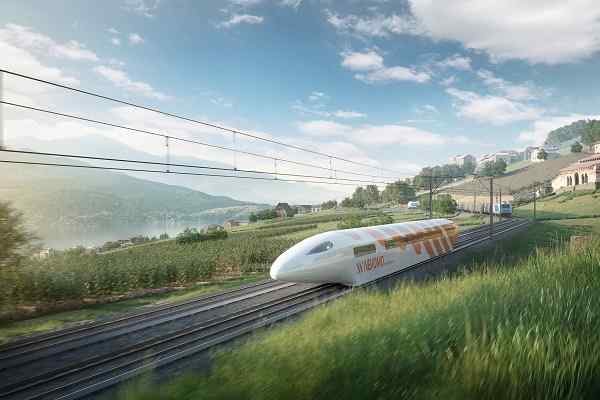 Nevomo's MagRail Technology Selected for Hyperloop Freight Demonstrator
Nevomo's MagRail Technology Selected for Hyperloop Freight Demonstrator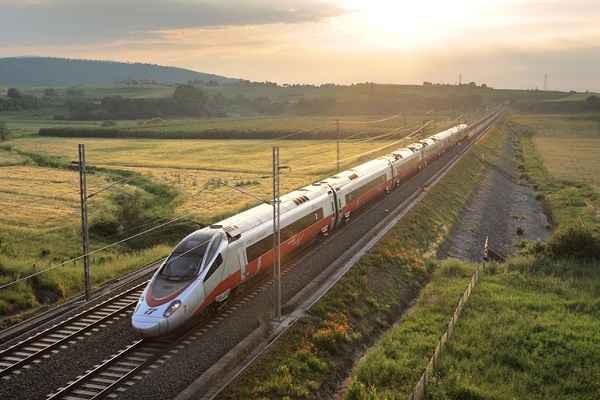 Russia signs deal to procure bullet trains for Moscow - St. Petersburg high-speed line
Russia signs deal to procure bullet trains for Moscow - St. Petersburg high-speed line
Exclusive Q&A with Infra-Man Kumar Keshav, MD, UP Metro Rail Corporation
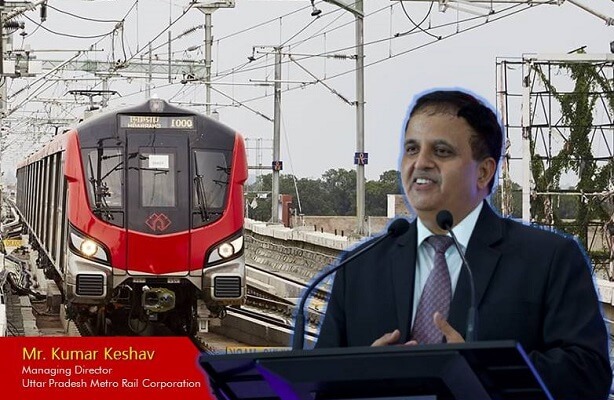
Mr. Kumar Keshav has been a pillar of strength in tougher times who has led from the front in realizing this dream of Lucknow Metro into reality. He continues to lead Uttar Pradesh Metro Rail Corporation (UPMRC) in charge of all the Metro projects in the state of Uttar Pradesh like Kanpur Metro, Agra Metro, etc. UPMRC has also achieved numerous milestones, international & national awards under his supervision & visionary insight since the inception of the Lucknow Metro project.
He was recently announced as the winner of ‘Infra-Man of the Year 2020’ at Rail Infra and Mobility Business Digital Awards (RIMBDA) 2020 for his remarkable achievements & exemplary contribution to the infrastructure sector. Moreover, UPMRC’s Lucknow Metro project was also adjudged as the ‘Green Mobility Project’ of the year.
In the recent conversation with Urban Transport News, he talks about the major challenges and current progress of metro rail projects under his leadership in various cities of Uttar Pradesh, India.
First, our heartiest congratulations on bagging the “Infra-Man of the Year” award in the individual category at Rail Infra and Mobility Business Digital Awards 2020. What did you feel when you heard the first time that you won this global award?
Thanks a lot for your wishes! I felt quite satisfied upon receiving this award and extend my gratitude to the Rail Infra and Mobility Business Digital Awards for this honour. We, at UPMRC, have worked consistently round the clock over the past 5 years to offer seamless services of the Lucknow Metro to the public. Recognition like this not only boosts our morale & but continues to motivate us to constantly raise the bar and perform even better. We hope to carry this momentum of civil construction work for the upcoming Kanpur and Agra Metro projects as well. Awards like these foster a sense of pride and responsibility in our UPMRC team so that we can collectively strive hard to meet new challenges.
Could you please tell our readers about your professional journey in Rail & Metro sectors? The challenges you had faced in the execution of major infrastructure projects under your leadership?
I am an Indian Railway Service of Engineers (IRSE) officer and a gold medallist from IIT-Kanpur (M. Tech.) and IIT-Roorkee (B.E.). I took over as UPMRC's Managing Director on August 18, 2014, formerly known as Lucknow Metro Rail Corporation (LMRC). The whole project work of the Lucknow Metro Rail Project of phase-1A was completed by the committed team of UPMRC in just 4 years 6 months.
Previously I served as Director (Projects & Planning) at Delhi Metro Rail Corporation (DMRC), and successfully completed and commissioned various projects in Delhi Metro during my tenure. Lucknow Metro has achieved the distinction of being the fastest executed metro project in the country. Even contemporary Metro projects in the country have not been able to match up with the speed of deliverance as compared to LMRC in project execution.
The major challenge in all metro projects is to garner the support of the general public. However, we were able to develop a favourable public opinion through consistent stakeholder engagement and community interaction programs. The other challenges we faced during the project phase were in the field of engineering construction. For instance: in the case of Lucknow Metro, LMRC had undertaken the construction of a balanced cantilever span of 255 meters at Mawaiya Railway Crossing. This work was executed at a height of 21.5 meters above the ground level while crossing over a railway line at a height of 15.2 meters from the ground level amidst the heavy main road traffic.
The Metro Depot land was earlier being used by the PAC but was later on acquired by UPMRC to construct its depot. This was a green area patch with several huge trees. We didn’t cut a tree and instead transplanted relocated them along our depot periphery with the help of heavy cranes.
Kindly highlight some commuter-friendly initiatives implemented in the “Lucknow Metro” under your leadership.
Lucknow Metro is committed to the vision of providing safe, fast, affordable, convenient, hassle-free, and barrier-free (for differently able) mobility solutions to the commuters. It has world-class infrastructure incorporating state of the art technology with modern stations having amenities like free Wi-Fi, free drinking water & washroom facilities, escalators, elevators, and automatic fare collection gates. Other facilities include the inter-car passage, 100% LED lighting, spaces for baby prams, and wide doors for differently-abled passengers.
We are also working in the direction of improving the first and last-mile connectivity. We have inked MoU with Urban Mass Transit Company (UMTC) and Uber for feeder services from metro stations. We are also planning to hire e-rickshaws as a convenient and eco-friendly feeder service. Most of our metro stations have a parking facility for commuters.
Kindly tell our readers about some salient features of the Lucknow Metro Rail project that made this project unique from other metro projects in India.
Lucknow Metro envisions being a sustainable mobility solution for commuters of the city in the long run. Various measures have been undertaken to ensure compliance with environmental norms since the inception of the project itself. For instance- over 35% of trees were saved by tweaking the design and alignment of the Lucknow metro. Several energy conservation measures have been adopted such as the use of regenerative braking in the trains that save 30-35% traction energy resulting in reduced emission of Green House Gases (GHG), use of Variable Voltage Variable Frequency (VVVF) drive for all lifts and escalators, provision of LED lights at stations, use of energy-efficient equipment for Environmental Control System (ECS) and Tunnel Ventilation System (TVS) system for underground stations.
Lucknow Metro also harnesses solar energy for the generation of electricity to meet the domestic requirements. We have installed capacity of 1MW solar plants in our system and annually we generate around 9 Lakhs Units. The regenerative braking systems in trains is also designed in such a way that it generates 38 percent power of its use.
For the safety & security of the commuters, UMRC has taken a number of significant steps such as the use of fire retardant material, fire protection & smoke detection, use of emergency communication facilities like talkback feature for passengers within the coaches. Each coach has CCTV cameras with comprehensive surveillance for the safety of the commuters.
For senior citizens and women, spaces are reserved in every metro train especially for the convenience of wheelchair users, passengers with baby prams & baggage within the specified size limit.
When will the work on Lucknow Metro's Corridor-II (Charbagh Railway Station – Vasant Kunj) start?
We have submitted the revised DPR of the East-West corridor from ‘Charbagh to Vasant Kunj’ of the Lucknow Metro to the government and waiting for approval. I’m hopeful that we will commission this section very soon which will benefit the public residing in densely populated areas of old Lucknow. This corridor will be predominantly underground and will improve inter-connectivity with Charbagh as a junction of two lines.
Kindly highlight recent development in Kanpur and Agra Metro projects.
The civil construction work of Kanpur Metro’s ‘Priority Corridor’ from ‘IIT to Motijheel’ is being executed at a considerable pace in the post-lockdown period. All the credit goes to the strategic planning of UPMRC. We have recently erected the first U- Girderfor the Metro viaduct on the pillar no. 17 and 18 near IIT Kanpur on the ‘Priority Section’ of Kanpur Metro Project.
UPMRC is committed to the goal of completing the ‘Priority Section’ of Kanpur Metro by December 2021 and commence operations of the entire 23.785 km comprising 22 stations from ‘IIT Kanpur to Naubasta’ by end of 2024.
Simultaneously, UPMRC has recently awarded the combined contract for supplying of Rolling stock and Signalling System for the Kanpur and Agra Metro projects to Indian consortium M/s Bombardier Transport India Pvt. Limited. State-of-art 67 stainless steel Metro trains of 3 cars each along with Communication Based Train Control (CBTC) signalling system will be manufactured by M/s Bombardier at their Savli plant in Gujarat. The implementation strategy of an integrated rolling stock & signalling package for Kanpur and Agra Metro projects has resulted in cost-competitive procurement by UPMRC in addition to advantages of uniform design, inventory control, and O&M simplification.
Moreover, Uttar Pradesh Metro recently got approval from the Supreme Court of India for the implementation of the Agra Metro project, and very soon we are going to start civil construction work.
Recently Hon’ble Supreme Court of India has given their conditional nod to start work on the Agra Metro Rail project. Could you please provide some inputs about the environment-friendly measures to be adopted during the construction of the Agra Metro project in Taj city?
As far as Agra is a concern, On 14th July 2020, after hearing the petition filed by Uttar Pradesh Metro Rail Corporation Ltd., the Supreme Court granted permission to the UPMRC for the implementation of the Agra Metro project subject to certain guidelines & conditions to be followed as per the recommendations of the Central Empowered Committee.
UPMRC has been planning & preparing design works for the Agra Metro project which is now in an advanced stage. UPMRC, with its outstanding track record, will now take up the physical works at the site at a fast pace and complete the project in time which will provide environment-friendly means and hassle-free access to major residential & commercial areas of the city as well as easy connectivity to major historical sites like the Taj Mahal and Agra Fort.
UPMRC has already the experience of successfully completing & implementing the Lucknow Metro project in a record time of fewer than 4 years 6 months simultaneously ensuring the environment-friendly measures for Lucknow city. It has also decongested the roads earlier ridden with traffic jams along the Metro corridor from ‘CCS Airport to Munshipulia’. We are committed to providing a world-class urban transport system to the people of Agra also.
What is the current status of the proposed metro rail project in Gorakhpur?
UPMRC has submitted the revised DPR of Gorakhpur Metro to the Govt. of Uttar Pradesh (GoUP) according to the New Metro Policy which is underway.
How difficult has the COVID-19 lockdown been for UPMRC and its ongoing projects?
The COVID-19 pandemic is an unprecedented time that has created a global humanitarian & economic crisis. Nevertheless, the crisis has not shaken our morale and Uttar Pradesh Metro Rail Corporation (UPMRC) is steadfastly committed to resuming the ongoing civil construction work of the ‘Priority Section’ of the Kanpur Metro project, albeit with necessary precautions and mandatory safety measures.
The initial crisis of labour shortage was overcome by assuring the provision of adequate medical care & accommodation at labour colony (at the construction site). This was decisive in winning the confidence of labour workforce which crossed the 1000 mark in just 50 days of commencement of civil work post lockdown.
Measures, therefore, have to be effective, accessible & practical in terms of communication. We are in strict compliance with various advisories issued by the government to achieve the above objective in the post-COVID-19 scenario. Adequate training has been imparted to the front line operational staff to mitigate the challenges arising after the outbreak of the Covid-19 pandemic. Likewise, expertise training has been arranged for all the staff in handling commuters. The whole team of UPMRC has been acquainted with new skills to render the utmost care in the current situation. We have drawn out a detailed ‘Business Continuity Plan’ and relevant ‘Standard Operating Procedures (SOPs), especially for this purpose.
We give topmost priority to the safety, security & protection of our commuters which will be pivotal for our successful performance when our Metro services resume. UPMRC is fully geared up to face any challenge which undermines personal health & hygiene in our premises.
What are the UPMRC’s biggest challenges in these times? How are you dealing with the loss of revenue streams due to the standstill of metro services?
The four months-long nationwide lockdowns has affected the collection of fare and non-fare revenue of not only UP Metro but other Metros as well. Non-fare box revenue from advertising at Metro stations, train-sets, and leasing out properties at Metro stations at this stage is more than 15% of the total operational revenue. Efforts to increase the operational revenues both through improvement in ridership as well as by further improving the non-fare box revenue share are already on. A mix of commercial and residential properties is being evolved at this land parcel to further enhance the income from property business and other miscellaneous sources for UPMRC.
Any other things you want to share with our readers.
We are fully prepared and well equipped to re-start the Metro services after lockdown. As soon as the government allows the operation of metro trains in India, I am sure several people will be travelling through Lucknow metro on a daily basis. We are strictly adhering to ‘Social Distancing’ norms of the government part from following best sanitization practices as part of our operational preparedness plan.
To provide them a safe journey, several measures have been undertaken for sanitation, cleanliness and personal hygiene of commuters at all our Metro stations of 23 km long North-South corridor.
Customer care centres, ticket counters (TOMs), TVM machines, Entry & Exit gates, security check frisking points, baggage scanner machines, hand railings in the trains and the Metro staircase are being cleaned and sanitised regularly. Station Controllers, security personnel and Customer Relation Assistants (CRAs) will be wearing gloves and masks during public dealing. I urge all our passengers to comply with the guidelines issued by the government from time to time.





